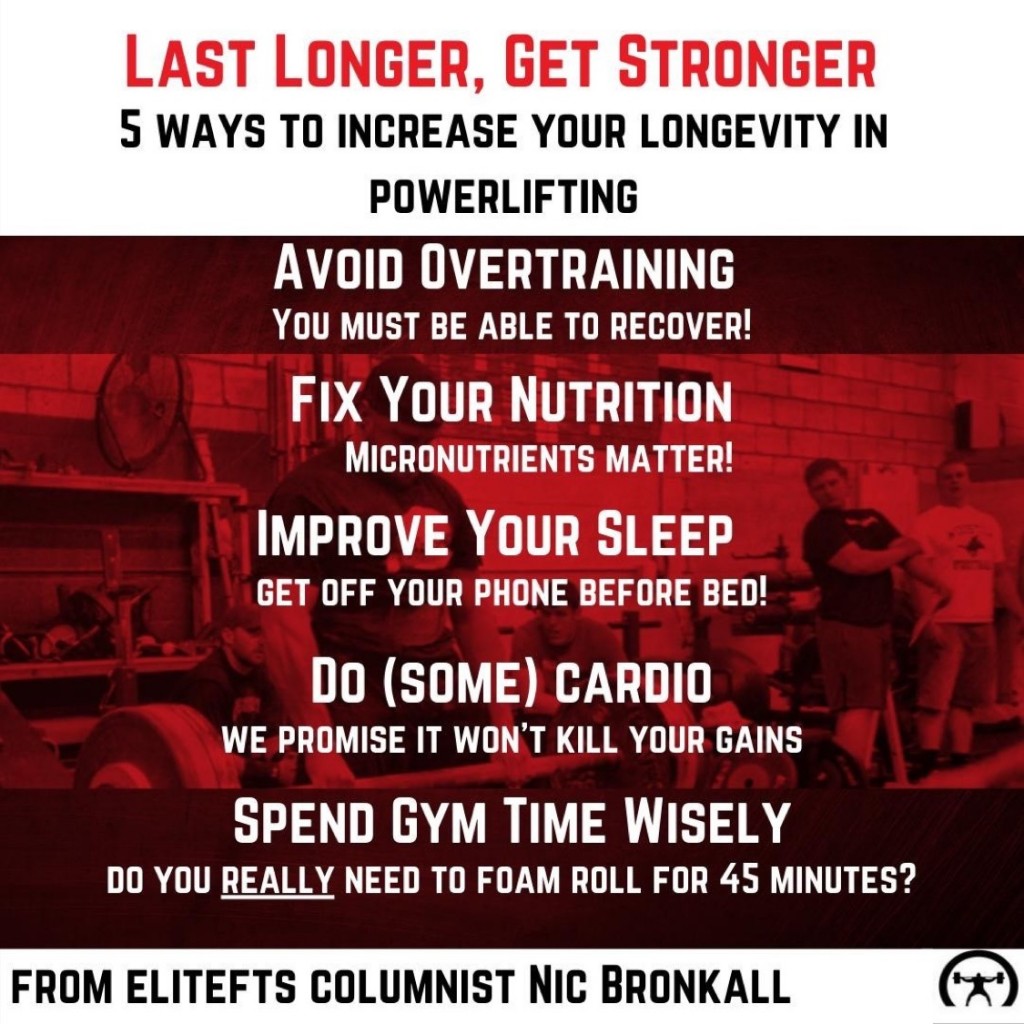
Be honest, are you really doing all 5?
"Avoid Overtraining
You have to increase the amount of volume you are able to recover from. The only way to recover from higher volumes is intelligent programming, patience, smart recovery, and listening to your body. If you don’t feel recovered between sessions, then your volume is probably too high, and your recovery is not where it needs to be.
Fix Your Nutrition
I get it—you’re bulking. But that doesn’t mean you should be eating garbage all of the time. It’s okay to have an occasional meal that isn’t healthy, but shoveling in a gallon of ice cream covered in Oreos, and using chocolate milk to wash it down your hole every day isn’t really the best approach. Things like diabetes and cardiovascular issues are real, and just because you lift weights doesn’t mean you are exempt from them.
Improve Your Sleep
One of the best ways to improve your sleep and to get into a deeper state is to have a nighttime routine. Routine helps to get your mind and body prepared for bed. Just like the majority of you have a lifting routine, you should have one for both going to bed and waking up. Even if it’s only 15 minutes.
Improve Cardiovascular Health
This myth needs to be laid to rest; you will not lose strength and power by working on your cardiovascular health. Stop using this as an excuse not to take care of yourself. It’s not hard; it’s just a matter of doing in. It can be done simply by dragging a sled, going for a walk, or taking a hike. The heart rate should be in zone 2, or 60-70% of your max heart rate.
Spend Gym Time Wisely
Another thing: does it take you two to three hours to complete a training session when in all reality you mostly trained for 45 minutes? Most of you will say, “I train two to three hours a day” but you don’t. You take 5-10 minutes between working sets, scroll the ‘gram, and chat it up with someone who doesn’t really want to talk to you. You’re at the gym to train. Get in, and get out."









